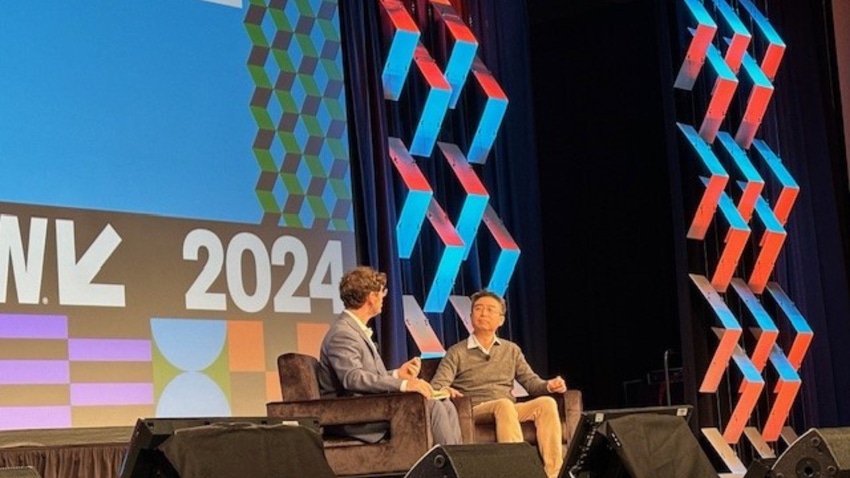OpenAI Will Always Offer a Free ChatGPT Version – SXSW 2024
OpenAI's Peter Deng adds that free ChatGPT also will have more capabilties over time

At a Glance
- OpenAI's head of product said there will always be a free version of ChatGPT, whose capabilities will improve over time.
- He said AI will be everywhere in the future so people will not care whether AI was used to create or enhance content.
OpenAI will always offer a free version of ChatGPT in accordance with its mission to be helpful to humanity, according to the head of the AI chatbot.
During a fireside chat at SXSW 2024, Peter Deng, who is vice president of consumer and enterprise product at OpenAI, said free ChatGPT will be subsidized by the startup’s profits from selling its services to companies.
Over time, the free version of ChatGPT also will become more capable as the technology advances, he added.
With this approach, OpenAI is following the game plan of tech giants such as Google and Meta that has made its products free to the world and opened accessibliity to the masses - for example Google Search, Facebook, Instagram and WhatsApp. Open access also fueled the growth of these products, which attracts advertisers. In the same vein, OpenAI offering a free version of generative AI is thought to expand usage by giving access to people who cannot afford the paid version.
Letting people play around with ChatGPT will let them see how powerful AI can be.
“I’ve never seen a technology in my lifetime that’s this powerful and shows so much promise,” Deng said. “I see it as a powerful tool. It unlocks the ability for us to go deeper and explore some of the things that we’re wondering about,” he said.
But rather than overtaking society, AI will instead “fundamentally makes us more human" because it frees people to pursue what makes them unique, he said.
Boosting bottom performers
Deng said ChatGPT was designed to be a helpful assistant to people and even perhaps a partner. He said that, for example, if he were to be falsely accused of a crime, he would want to have his legal team use AI for his defense.
Deng sketched a scenario in which the AI would be listening in real time to a testimony in court and cross-checking past cases and other resources at the same time to suggest good cross-examination questions to the lawyer.
In health care, he cited the case of a mother who has seen 17 doctors over three years to treat her son’s pain to no avail. When she turned to ChatGPT, she got the right answer. Her son was able to get surgery for his condition and is doing better.
Deng also cited a study by BCG in Harvard Business Review in which employees were given use of ChatGPT. They found that among high performers, their productivity and quality increased by 17%. But among bottom performers, it soared by 43%.
Create cognitive space
Deng said among the benefits of AI is that it can create cognitive space for people who are perpetually busy.
By tackling the more mundane, rote tasks, AI frees up human beings to think at a higher level. Deng said he often finds that it helps to step away from day-to-day activities from time to time so he can think through things.
Where he sees AI heading is to the edge, where it learns from you and your data to generate answers specific to your scenario. Asked if this customization extends to one’s values, he said the system will learn about your values over time. This is appropriate since each culture has its own beliefs; it “shouldn’t be prescriptive” from OpenAI, he said.
Likewise, Deng said ChatGPT does not push U.S. or western values to the rest of the world.
“We work with people all over the world. We have teams that talk to governments all over the world and trying to really understand the users,” Deng said. “Remember, the mission of OpenAI is to benefit the whole of humanity, and you can’t only benefit all Americans.”
People will not care if it is AI-generated
Deng sees a day in which AI will be so pervasively used throughout society that people will not care whether it was used for creation of art or enhancement of a piece of content.
Much like people use Adobe Photoshop today to edit images or Grammarly to correct their writing, these are tools that are routinely used to enhance human work without sparking controversy, he explained. The same will be true for AI over time.
In the short run, however, identifying AI-generated content is an important capability especially in an election year like 2024, Deng said. Last month, OpenAI said it would add metadata tagging in images created by ChatGPT, which uses the DALL-3 image generation model.
As for where he stands on the debate between AI development acceleration or deceleration, Deng said he is somewhere in the middle.
“Release the technology in a way that gives you a chance to make sure you have the right safeguards in place,” he said, adding that he favors an iterative approach of making improvements one step at a time. "That's my best bet on how we can advance technologies" more safely.
Read more about:
ChatGPT / Generative AIAbout the Author(s)
You May Also Like


.jpg?width=700&auto=webp&quality=80&disable=upscale)
.jpg?width=700&auto=webp&quality=80&disable=upscale)
.jpg?width=700&auto=webp&quality=80&disable=upscale)
.jpg?width=300&auto=webp&quality=80&disable=upscale)
.jpg?width=300&auto=webp&quality=80&disable=upscale)
.jpg?width=300&auto=webp&quality=80&disable=upscale)

.jpg?width=300&auto=webp&quality=80&disable=upscale)